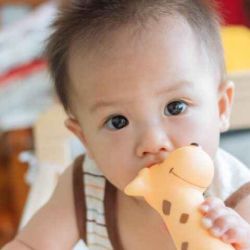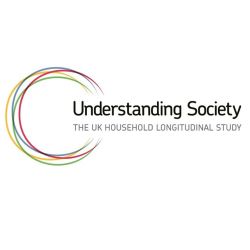Share

Understanding Society Podcast Series
Who carried the work burden during COVID-19?
Season 3, Ep. 1
•
In the first episode of our new podcast series, we look at employment and the experience of working-class women during the COVID-19 pandemic. Series host Catherine McDonald speaks to Professors Tracey Warren from Nottingham University Business School and Clare Lyonette from Warwick Institute for Employment about their project Carrying the Work Burden of the COVID-19 pandemic: working class women in the UK. Dr Mary-Ann Stephenson, Director of the Women’s Budget Group and co-collaborator on the project also joins to explain the motivation for the research and the ways in which their findings are serving as vital evidence in the case of building back better with increased gender equality.
The research project’s website can be found here.
More episodes
View all episodes

2. Housing and ageing
09:49In a new episode of our quick-listen one-to-one podcasts, Dr Amy Clair from the Australian Centre for Housing Research talks to Chris Coates from Understanding Society about research which suggests that private renting can age you faster than being unemployed or smoking.
1. Pregnancy and early childhood data
11:15In a new episode of our one-to-one podcasts, Edith Aguirre, a senior research officer at the Institute for Social and Economic Research, talks to host Chris Coates about Understanding Society’s ‘PEACH’ file. This brings our data on children under 10 together with data on pregnancy and child development, to help researchers study family dynamics.
6. Coastal communities
15:24Emily Murray, Director of the new Centre for Coastal Communities at the University of Essex, joins host Chris Coates to talk about the work of the new centre, and her research into the challenges and opportunities of living by the sea
5. Boomerang movers
33:34Emily Grundy, a Professor in the Institute for Social and Economic Research at the University of Essex, and Toby Murray, from the Money and Mental Health Policy Institute, discuss the trend of ‘boomerang’ movers – adult children who move back in with their parents, and what it means for wellbeing
4. Loneliness and mental health
23:09What can data tell us about loneliness and its links with poorer mental health? And what, if anything, can we do about it? Discussing this with host Chris Coates are Ann-Marie Creaven from the University of Limerick, and Isabel Taylor from the Joseph Rowntree Foundation.
3. Religion and mental health
34:18Ozan Aksoy, Associate Professor in social science at the Social Research Institute at University College London, and Malcolm Brown, Director of Faith and Public Life at the Church of England, discuss research which shows that attending religious services more frequently was associated with higher wellbeing.
2. Climate change: attitudes and policy
18:41Ting Liu, a social statistics PhD student at the University of Manchester, who is investigating attitudes toward climate change risk and carbon emissions, and Helena Bennett, Head of Climate Policy at the Green Alliance think tank, discuss what data can tell us about how we think about climate change, and what’s next for government policy?
1. Housing, wealth and inheritance
35:12Rory Coulter from University College London and David Sturrock from the Institute for Fiscal Studies join Catherne to talk about housing, wealth and inheritance – what does research tell us, and what does it mean for government policy?
9. Who answers panel surveys every time, and who doesn’t?
08:50Nicole James, Survey Data Officer at Understanding Society, and a PhD Student in Survey Methodology at the Institute for Social and Economic Research says understanding survey attrition helps make sure our sample is representative. Her paper on the subject was published in the Survey Research Methods journal.